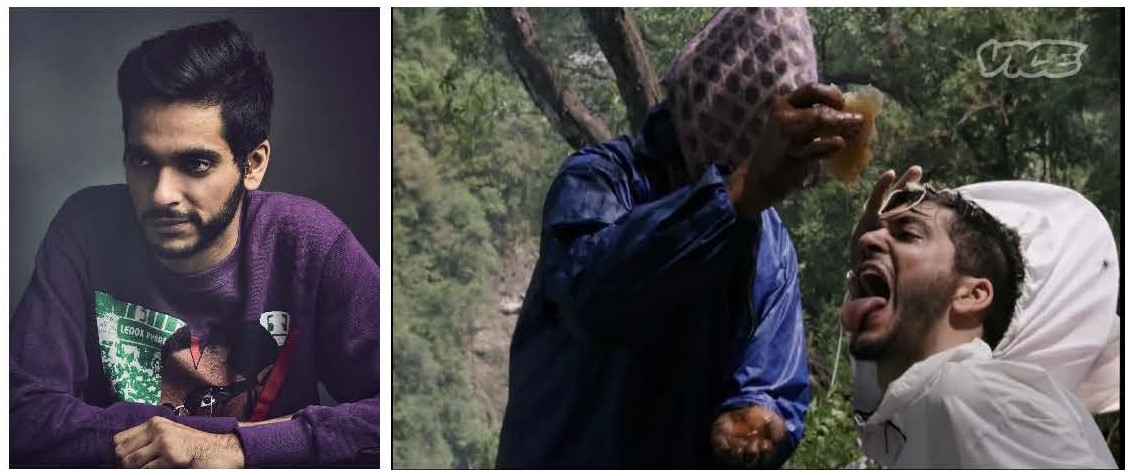Experiential experiment: Abdullah Saeed’s approach to covering taboos
Chances are, you live in a state where cannabis is legal. While the positive or negative impacts of the plant’s legalization are up for debate, the lucrative legal cannabis industry is getting a lot of media attention. There may be no such thing as bad press, but overwhelmingly positive reporting on cannabis legalization risks different perspectives falling through the cracks.
Abdullah Saeed started his journalism career by following his passion for music. He naturally gravitated toward the electronic scene, beginning by reviewing mixtapes and writing a blog called Adventures in Pork (which he had never eaten as an observant Muslim). After a quick stint at MTV, getting hired by Vice Media gave Saeed the opportunity to pursue cannabis journalism.
In 2012, Saeed began reporting on cannabis as adult-use became legal in Colorado and joined the flock of reporters in Denver where they covered the booming industry. States enacting such policies became the epicenter for marijuana, and Vice developed a reputation for its hot pursuit of weed stories.
Saeed continued producing documentaries for Vice, exploring a range of topics, including cannabis. He was sent on assignment to Chad to report on the Darfuri soccer team; He spent almost three weeks in central Africa before returning home to produce Darfur United. He continued to produce more cannabis content as legalization was well under way in many states.
Bong Appetit was an experiential show that offered an authentic depiction of the people and culture surrounding cannabis. While it was less journalistic than Saeed’s other work, it was a wholesome, lighthearted procedural cooking show that didn’t sensationalize cannabis or lean on the “lazy stoner” cliche.
Saeed proved that it wasn’t necessary to rely on tropes, policy or the medical benefits of cannabis in order for Bong Appetit to succeed. The show embodied a shift in Vice’s approach to cannabis content, but for Saeed it was essential that a refreshing and informative depiction of cannabis impacted the audience’s perception of the intoxicating substance.
Although Saeed no longer works with Vice and is not involved with Bong Appetit’s production, the show still stands out by introducing the once-taboo substance to a routine genre: the cooking show. His approach explored the blurred lines that separate intoxicating substances from other categories of things we consume.
Saeed’s approach scrutinizes how we understand the world and creates space for nuanced discussions about our perceptions of topics like recreational drugs and medicine. His work promotes healthy discourse about the impact of our shifting social mores.
When Saeed began reporting on cannabis, it wasn’t clear whether his sincerity regarding personal consumption would damage his career. However, his passion and personal investment did not detract from the impact of his work, but rather reinforced it.
The shifting perceptions extend beyond that of cannabis and other drugs. It is crucial that a range of voices with different perspectives and varying backgrounds are represented in the media. Journalists and creators certainly embrace the idea of diversity, but they must also practice it for the work of people like Saeed to flourish.





